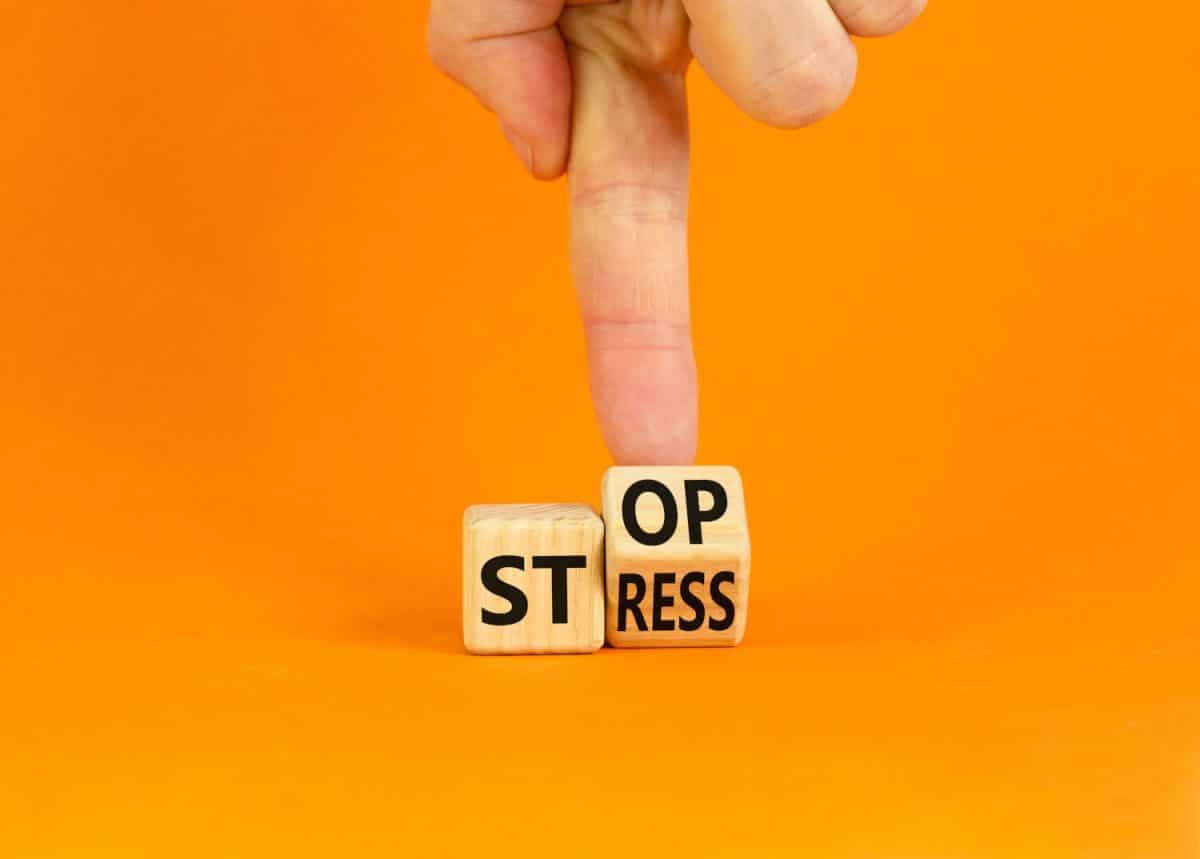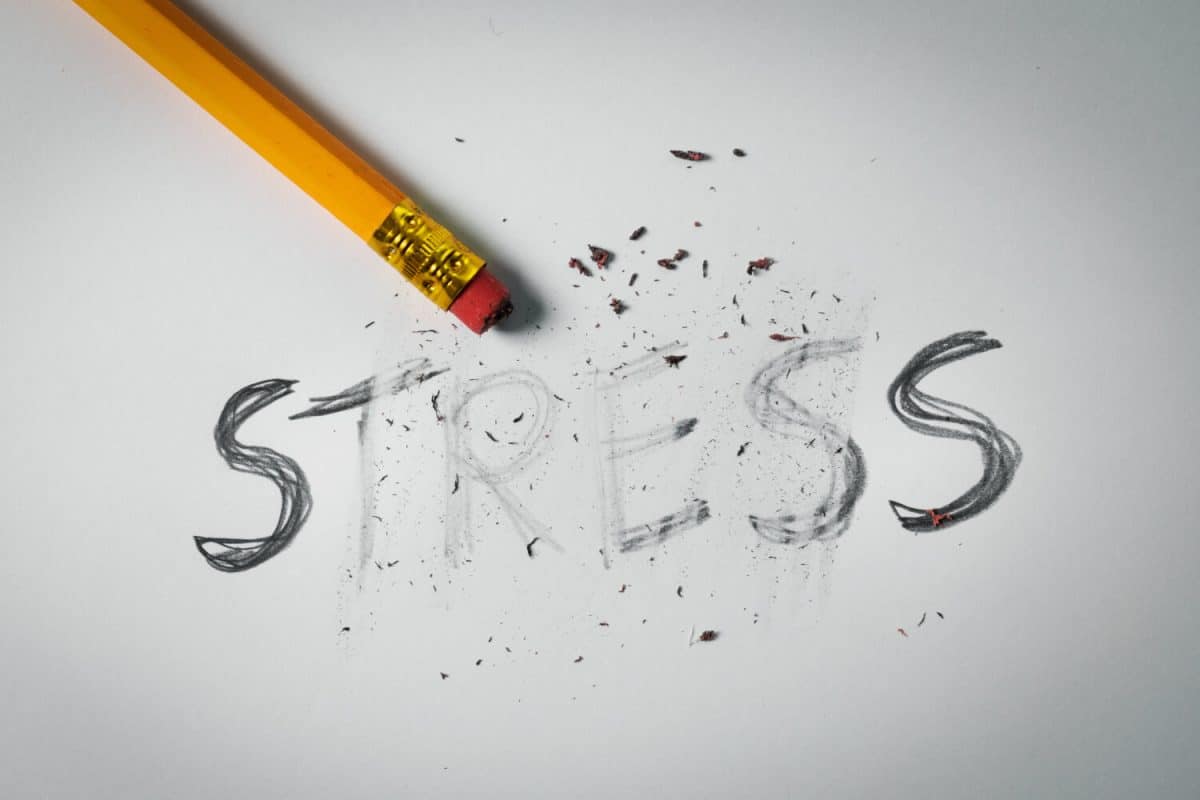Most of us have heard or read somewhere about how a certain amount of stress can be good for us.
Why stress can sometimes be good for you
Some researchers suggest that exposure to moderate stress levels can help build our resilience, thus, making us stronger, more robust individuals.
How to manage stress positively
One researcher, Melanie Greenberg, Ph.D., uses the vaccination analogy to describe how stress can often be beneficial, but only when it’s manageable and short-lived.
”It (stress) is like how a vaccine containing a tiny amount of bug can immunise you against getting a specific disease” (Melanie Greenberg, Ph.D.).
The above might be true if your stress is short-lived, but when healthy stressors turn to chronic stress, things may get dicey, to put it mildly.
Chronic stress
Researchers report that how many people handle stress in adulthood comes from early traumatic experiences.
Indeed, experiencing childhood trauma can disrupt our brain’s stress response, negatively impacting specific regions in the brain, such as:
- The hippocampus (verbal memory centre)
- The prefrontal cortex (the ruler of the brain and its stress regulator)
- The amygdala (the brain’s unique alarm system)
Chemical reactions and how people cope with stress
When chronic stress causes specific brain alterations, those with too much early trauma may be more chemically reactive to stress.
Almost as if the person has become wired for stress but in all the wrong ways.
Health issues
People with early trauma are at higher risk of becoming predisposed to specific stress responses – leading to mental and physical health problems, such as:
- High blood pressure
- Compromised immune system
- Migraines and other aches and pains in the body
- Digestive problems
- Anxiety and depression
- Heart disease
How ”good” stress leads to better stress management

One fascinating study by Richard Dienstbier reported that experiencing moderate stressors, with recovery in between, makes us more physically and mentally robust and less reactive to future stress (Richard Dienstbier, ”theory of toughness” 1989).
The way you deal with stress matters
One explanation for Dienstbier’s theory could be that when we effectively cope with stress, we strengthen our stress muscles – much like weight training builds our physical endurance and agility.
Mental toughness
Essentially, some stress is necessary to build mental toughness so that you can view stressors as more manageable, and in doing so, you learn to manage your stress more effectively.
Managing a stressful situation
Seery et al. offered sage advice about the benefits of stress with this infamous quote:
”In moderation, whatever does not kill us may make us stronger”.
Although the keyword here is moderation, the reverse might very well be true when dealing with a lot of stress.
Chronic stressful situations
Research highlights the profound effects of chronic stress in the workplace, reporting that seventy million days are lost from work each year due to mental ill-health in the UK alone.
The above includes depression, anxiety, and other stress-related conditions, making stress the leading cause of absence (Mentalhealth.org).
What is stress?
One helpful definition of stress is that it is ”a feeling of being under abnormal pressure.”
Note the word ”abnormal” in the above sentence.
Indeed, ”normal” stress (as already mentioned) can sometimes be good for us, depending on the factors involved.
Stressful situation
Stress can manifest from many different sources in your daily life.
The above may include problems in your work life, conflict with family members, dealing with a long-term stressful situation, and mental health problems, to name just a few.
Cumulative effect
Sometimes your stress may have a cumulative effect, especially when each stressor piles on top of another.
Stress response

When stress gets too overwhelming, you may feel anxious or threatened, and your body may begin to create what is known as a stress response.
Stress can severely affect the body and mind.
The above may create a range of symptoms and can often change normal behaviour patterns making them more destructive, leading you to experience more profound emotions.
Stress, especially when it’s chronic, can affect us in many ways, impacting us physically and mentally and in different shades of intensity.
Fight or flight response
The stress chemicals activated during challenging times can often trigger a fight or flight response in your body.
The above can make you more susceptible to symptoms of stress such as anxiety, nervousness, anger, or even substance abuse to cope.
When the stress button remains activated
When a fight or flight response gets triggered, the stress chemicals produced to get you through a difficult period may have a hard time returning to an original wellness baseline.
Stress relief
In the above instance, many people may require the help of a mental health professional to help them identify the root cause of trauma while addressing the symptoms.
Identifying symptoms of stress
Most of us experience stress at times.
However, when stress becomes pervasive, it may affect your daily life, severely limiting your ability to function.
Knowing the signs
Thus, addressing your stress symptoms as soon as you notice them is critical.
Researchers report that recovery often starts with understanding how your stress affects you and knowing the stress signals before they occur.
Symptoms of stress
Common symptoms of stress include:
- Feelings of being overwhelmed
- Changes in your mood or severe mood swings
- Feeling constantly anxious or worried
- Having a hard time relaxing
- Depression
- Changes in your sleeping habits, i.e., sleeping too much or too little
- Eating more or less than usual
- Experiencing bodily aches and pains, especially muscle tension
- Engaging in substance abuse such as alcohol, illegal drugs, or tobacco to cope
- Feeling dizzy or nauseated for no apparent reason
- Loss of sex drive
- Experiencing diarrhoea or constipation
- Low self-esteem
Stress management
The good news is that there are some things you can try when you feel the effects of stress creeping in.
Research suggests that the following three steps may be helpful for those hoping to manage their stress more effectively.
1. Identifying the cause
- Recognising the cause of your stress
- Working through the possible reasons for your stress anxiety can be a valuable activity for stress relief. The above involves splitting your worries into three categories 1) stressors with a practical solution, 2) stressors that will get better with time, and 3) stressors you have no control over
- Working to release the worry of your stressors in the second and third groups may help you to let them go more quickly.
2. Recognising when your stress is causing you issues
- Being aware of any physical warning signs of stress such as headaches or migraines, fatigue, over-tiredness, and muscle tension may help you manage your stress before it worsens.
- Making the correlation between feeling unwell or tired and the pressures you are experiencing may also help you manage stress.
3. Taking a look at your lifestyle
- Can your list of things to do get given to someone else?
- Are you stressed because you might be taking on too much?
- Can you do things in a more relaxed, calming manner?
Reorganising your life to manage stress
The above questions may help you reorganise your life to enable you to achieve all the essential things in a more manageable way.
Steps to take for better stress management

You can take other steps to manage your daily stress better.
They include:
Eating a healthy diet.
Research demonstrates a growing body of evidence showing how certain foods can impact our mental health and mood and that eating healthy improves emotional wellness.
Increasing your physical activity
Regular exercise can be very effective for stress reduction. In addition, physical activities like walking and spending time in nature can help with daily stress management.
Being conscious of your drinking and smoking
By cutting out or reducing your alcohol and tobacco intake, you will reduce your stress levels.
Although alcohol and tobacco may seem helpful in stressful situations, they often make problems worse in the long run.
Practising mindfulness
Studies show that mindfulness can reduce the effects of stress and anxiety, such as low mood, insomnia, and poor concentration.
Managing your stress response
Mindfulness helps us relate to our experiences differently, allowing us to pay attention to our thoughts and emotions, increasing our ability to manage challenging situations and make better decisions.
Calling a time-out
Understanding that it’s okay to practice self-care and put your health first is crucial to positive stress management.
Taking the time to relax and striking a balance between your responsibility to others and yourself can help reduce stress.
Engaging in therapy
Talk therapy is one of the best therapies for stress management.
Identifying what causes your stress and how you can resolve it with a therapist can be immensely beneficial.
Trauma treatment
For those with childhood or other life traumas, some trauma treatments may also be beneficial to help you manage your stress.
They involve:
- EMDR – eye movement desensitization reprocessing
- Cognitive behavioural therapy
- Group therapy
- Individual therapy
- Addiction treatment
Other helpful stress management techniques
Other tips to reduce stress include:
- Practising deep breathing
- Meditation
- Yoga
- Getting regular restful sleep
- Reaching out to family and friends for support
- Leaving toxic or harmful relationships.
How to help yourself through a stressful period
Stress is a normal reaction to many challenging life events such as work-life stress, relationships, family, and financial issues.
As already mentioned, a healthy amount of stress can be good for us and can even help us build resilience and mental toughness when it is proportionate.
Mental and physical health complications
However, excessive or chronic stress can lead to myriad physical and mental health problems.
Excessive stress can cause lower immunity levels, intestinal and digestive issues, and mental health problems such as anxiety and depression.
Therefore, engaging in proper stress management strategies is crucial to prevent long-term damage to your mind and body.
How White River Manor can help you manage your stress more effectively
If you want to learn more about stress management or are worried about your mental health, get in touch with a specialist at White River Manor who can help.
We provide comprehensive, effective stress treatment for those experiencing acute stress, chronic stress, and various other forms of anxiety by treating the symptoms or conditions caused by chronic stress.
Such interventions are available at White River Manor; please get in touch with us today so we can guide you throughout your recovery journey.

